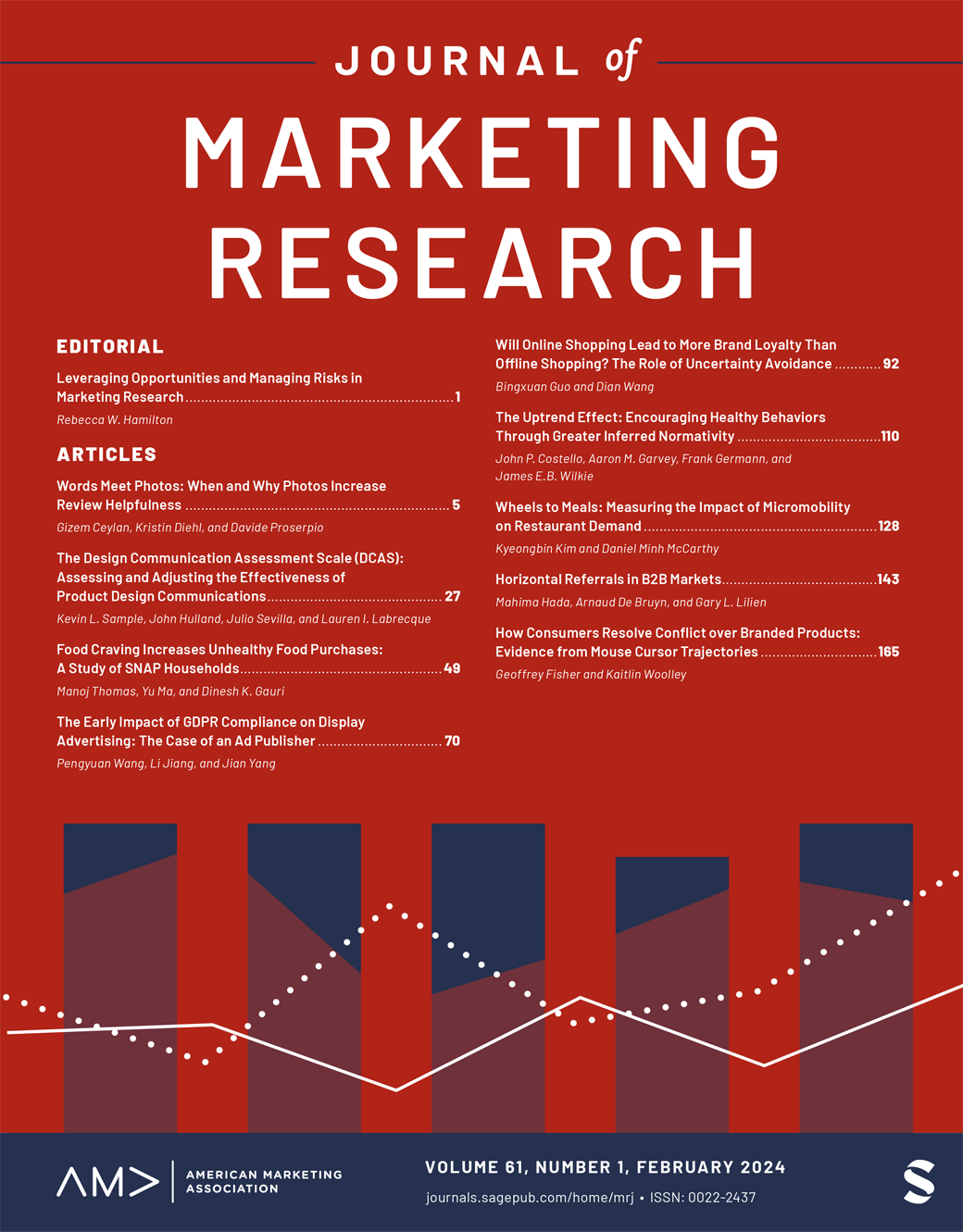《美国的食品杂货购物:减轻对国家认同威胁的策略》
IF 5
1区 管理学
Q1 BUSINESS
引用次数: 0
摘要
人们通过消费代表其国籍的产品来间接支持一个国家的身份。在这种背景下,本文关注的是当国家面临机构的威胁时,人们对具有国家协会的品牌的反应。制度之所以重要,是因为它们是界定国家特性的核心要素之一。对国家身份的制度性威胁可以来自国家内部(内部威胁),也可以来自外部(外部威胁)。2004年的每周超市扫描仪数据显示,在阿布格莱布酷刑丑闻(内部威胁)报道率较高的县,听起来像美国品牌的销售额下降,在战争伤亡较多的县(外部威胁),听起来像美国人品牌的销售额增加。另外七个实验表明:(a)源自民族认同的自我增强介导了这些主要影响,(b)将注意力重新集中在品牌如何帮助应对外部威胁的广告减轻了内部威胁对美国品牌的负面影响,以及(c)此类广告并不能减轻内部威胁对非美国品牌的负面影响。定性调查(N=218)、调查(N=1603)、实验(N=3123)和二次数据分析(包括1100多家美国商店的8000多个品牌的销售额)用于对结果进行三角分析。本文章由计算机程序翻译,如有差异,请以英文原文为准。
EXPRESS: Grocery Shopping for America: Mitigation Strategies for Threats to National Identity
People demonstrate indirect support for a nation’s identity by consuming products representing their nationality. In such context, this paper focuses on how people react toward brands with national associations when the nation faces threats perpetrated by institutions. Institutions are important as they are one of the core elements defining national identity. Institutional threats to national identity can come from within the nation (internal threat) and from outside (external threat). Weekly supermarket scanner data from 2004 showed that sales of American-sounding brands declined in counties that saw higher coverage of the Abu Ghraib torture scandal (internal threat), and sales of American-sounding brands increased in counties with more war casualties (external threat). Seven additional experiments demonstrated that: (a) self-enhancement derived from national identity mediates these main effects, (b) advertisements that refocus attention on how the brand helps to cope with external threats mitigate the negative effects of internal threats for American brands, and (c) such advertisements do not mitigate the negative effects of internal threats for non-American brands. Qualitative surveys (N=218), surveys (N=1603), experiments (N=3123), and secondary data analyses (encompassing sales of over 8,000 brands across more than 1,100 US stores) were used to triangulate the results.
求助全文
通过发布文献求助,成功后即可免费获取论文全文。
去求助
来源期刊

Journal of Marketing Research
BUSINESS-
CiteScore
10.30
自引率
6.60%
发文量
79
期刊介绍:
JMR is written for those academics and practitioners of marketing research who need to be in the forefront of the profession and in possession of the industry"s cutting-edge information. JMR publishes articles representing the entire spectrum of research in marketing. The editorial content is peer-reviewed by an expert panel of leading academics. Articles address the concepts, methods, and applications of marketing research that present new techniques for solving marketing problems; contribute to marketing knowledge based on the use of experimental, descriptive, or analytical techniques; and review and comment on the developments and concepts in related fields that have a bearing on the research industry and its practices.
 求助内容:
求助内容: 应助结果提醒方式:
应助结果提醒方式:


